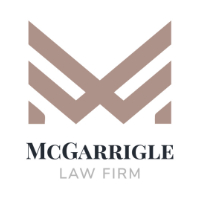Prospect Park Criminal Lawyer, Pennsylvania
Sponsored Law Firm
-
 x
x

Click For More Info:
-
Christofer C. Johnson, Esq.
1500 Walnut Street Suite 2000 Philadelphia, PA 19102» view mapCriminal Defense Experienced Criminal Defense Lawyer
Christofer C. Johnson, Esq. has a track record of successful case outcomes and provides legal counsel for a reasonable price.
800-694-1771
Christopher Bokas
✓ VERIFIEDAttorney Christopher Bokas handles all felonies and misdemeanors, including white collar crimes, juvenile crimes, drug offenses, parol and probation v... (more)
Daniel McGarrigle
✓ VERIFIEDAttorney Daniel McGarrigle is an aggressive advocate and experienced litigator; he has tried hundreds of cases and handled all types of criminal matte... (more)
Gerard Killard Schrom
✓ VERIFIEDGerard earned his Juris Doctor from the Widener University School of Law and went on to focus his practice around criminal defense and civil litigatio... (more)
Lee Ciccarelli
✓ VERIFIEDLee Ciccarelli is the founder and motivating force behind Ciccarelli Law Offices, a law firm with a team approach aimed at engaging our clients while ... (more)
Bernard M. Berman
FREE CONSULTATION
CONTACT Christofer Johnson Philadelphia, PA
Christofer Johnson Philadelphia, PA AboutChristofer C. Johnson, Esq.
AboutChristofer C. Johnson, Esq. Practice AreasExpertise
Practice AreasExpertise





